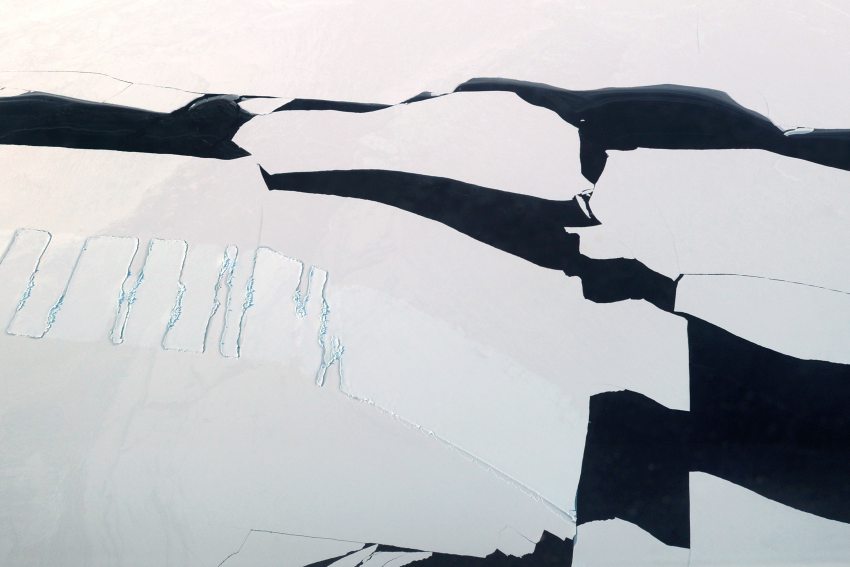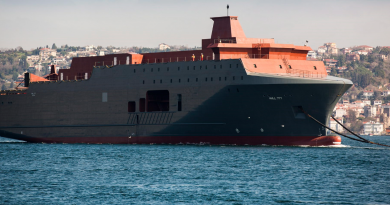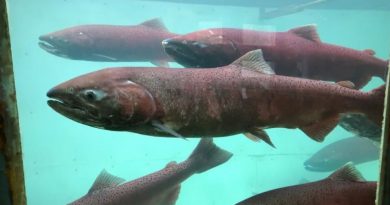Warming evident in Arctic air and waters: report

The Arctic is warming at twice the global pace — and Arctic warming is affecting other parts of the world.
Those are two of several key findings outlined in a broad report on the Arctic released Tuesday by government and academic scientists.
The 2015 Arctic Report Card, a project sponsored by the National Oceanic and Atmospheric Administration, details the state of weather, sea ice, snow cover and marine and wildlife habitat in the Arctic and subarctic, and how those have changed as the region continues to warm at about twice the global pace.
“Now in its 10th year, the Arctic Report Card is a key tool to understanding changes in the Arctic and how those changes may affect communities, businesses, and people around the world,” NOAA chief scientist Rick Spinrad said in a statement released by the agency. “The Arctic is warming twice as fast as other parts of the planet, which has ramifications for global security, climate, commerce, and trade.”
‘Strong connections’
The report was released Tuesday morning by NOAA at the annual convention of the American Geophysical Union in San Francisco.
For lands north of 60 degrees latitude, average annual surface air temperatures were 1.3 degrees C (2.3 F) warmer than the long-term average measured from 1981 to 2010 — and 2.9-degrees C (5.2 F) warmer since the beginning of the 20th century, the report said. That means air temperatures over land in the circumpolar north were higher during the course of the past year than at any other time since detailed records first began being kept more than a century ago.
“Strong connections” between the usual warmth in the Arctic and conditions in more temperate latitudes were documented, the report said. That was particularly dramatic in the North Pacific, where warm air flowed across Alaska from November 2014 to June 2015, creating conditions that contributed to the state’s second-biggest wildfire season on record, the report said.
Warming was evident in the waters of the circumpolar north as well, according to the Arctic Report Card.
Sea ice extent
In February, Arctic sea ice extent hit its annual maximum — the lowest maximum since satellite records began in 1979. The melt season began 15 days earlier than average and was the second-earliest start in the 38-year satellite record. In February and March, the time of peak freeze, 70 percent was new and fragile first-year ice and only 3 percent was thick multiyear ice more than 4 years old. That compares to the situation in 1985, when 20 percent of the ice was more than 4 years old and only 35 percent was first-year ice, the report said.
Sea-surface temperatures in all seas of the Arctic Ocean are increasing, and the most dramatic warming over the past year was found in the Chukchi Sea off Alaska and eastern Baffin Bay off Greenland, where surface water temperatures have risen 0.5 degrees C (0.9 F) per decade since 1982, the report said. Melting sea ice is allowing much more sunlight to penetrate the upper levels of the ocean, causing widespread and “exceptional” phytoplankton blooms, the report said.
The warming trend is also putting more fresh water into the Arctic Ocean. Flow from the eight biggest Arctic rivers, including the Yukon and Mackenzie in North America, has increased 10 percent from the annual average recorded in the 1980s, the report said. Those changes, which include earlier peak discharge than in the past, are attributed to increased Arctic precipitation that is linked to warming.
Related stories from around the North:
Canada: COP21 – View from Canada’s Northwest Territories, Eye on the Arctic
Finland: Mixed reactions in Finland to Paris climate accord, Yle News
Greenland: Paris – A COP-out for Arctic Peoples?, Ice-Blog
Sweden: Positive reaction to climate deal in Sweden, Radio Sweden
United States: For Alaskans in Paris, climate talks hit home, Alaska Dispatch News



